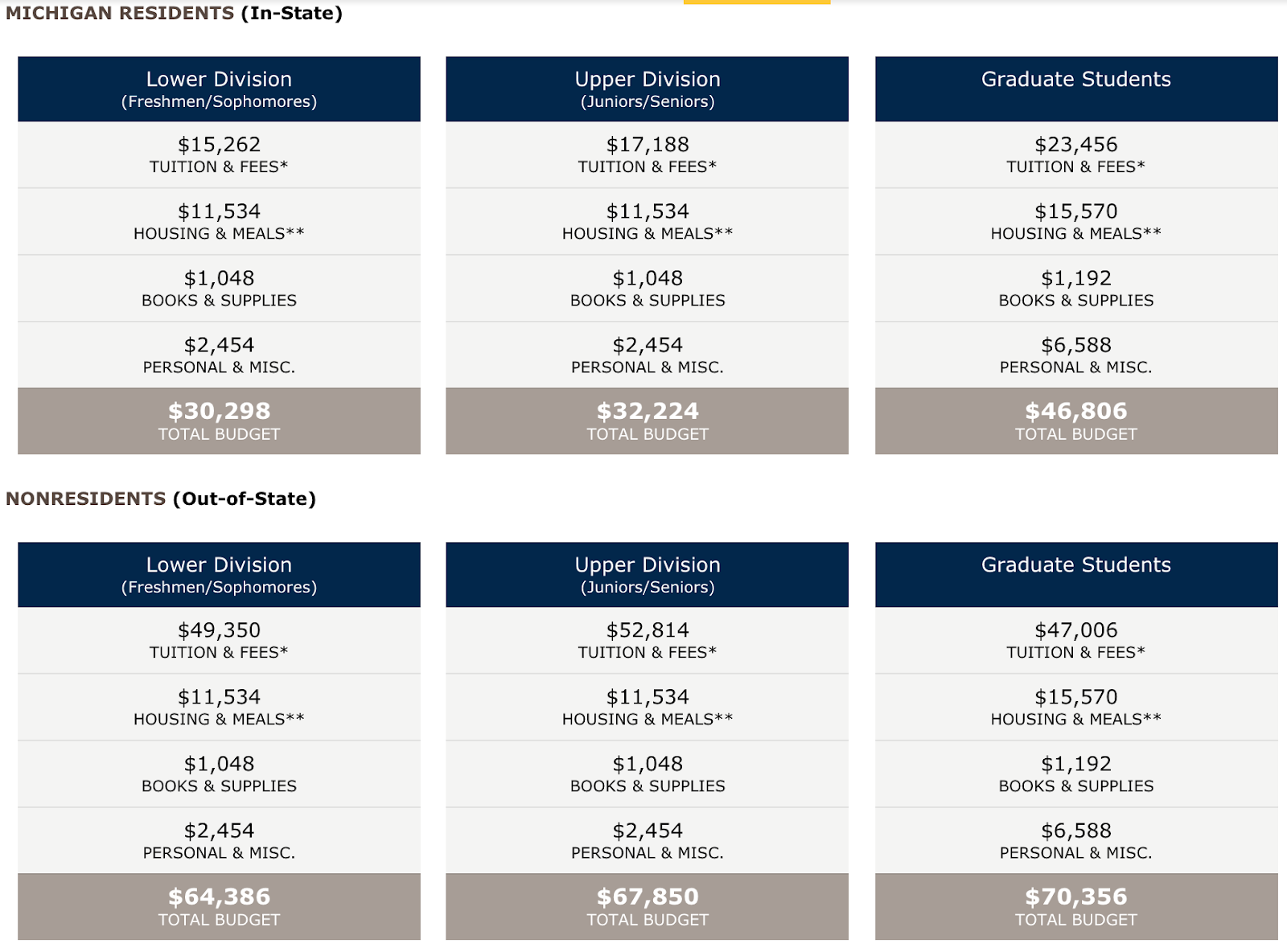Blog
Get the inside scoop about life at U-M and applying to Michigan from current student bloggers, Admissions staff, and guest faculty writers.

Get the inside scoop about life at U-M and applying to Michigan from current student bloggers, Admissions staff, and guest faculty writers.


When I first applied to the University of Michigan, I didn’t have many worries. The first time I had a teacher talk to me in class about college, I knew that I wanted to attend Michigan. It was never a question. If I was admitted into Michigan, I was attending. One question lingered over me, however: how was I going to afford school?
As a first-generation college student from a low-income background, I had no idea what I was getting myself into. Thankfully, I pay in-state tuition and receive a very generous amount of financial aid. Even with robust support, I still need to be careful about the amount of money I’m spending. So, what can you do if you face financial obstacles as a student?
Know the costs
First, let’s consider the estimated cost of attendance straight from the university’s Office of Financial Aid.

Unfortunately, there is no way around paying the full tuition and fee costs. Thankfully, there are ways to cut costs in every other category!
Housing and meals
I cannot stress how great an experience it is to live in the dorms during freshman year. That is a once-in-a-lifetime experience that you should not pass up. However, it’s true: off-campus housing can be much cheaper if you find the right apartment and live with a roommate. In fact, I have friends who pay as low as $400 per month including utilities who only live one-to-two minutes off campus.
Going grocery shopping is also a fantastic alternative to the dining halls to minimize food costs. If you don’t have a car on campus, you can easily get to the grocery store using ZipCar ($15 per year to join as a student and $5-10 per hour to borrow a car, gas included) or The Ride, which has stops near grocery stores such as Meijer and Trader Joe’s.
Books and supplies
I’ll be honest with you: I paid around $50 for books total this semester as a full-time student. While some courses do require books that come with a hefty price tag, many classes allow you to use older versions of textbooks. If you do your research, you can find older textbooks for cheap or even free. BooksPrice is a great site for buying used textbooks and novels, and you can often find digital versions of textbooks free online or through the library (MLibrary is a great place to start your search). All in all, I have never come close to paying $1,048 for books and supplies.
Personal and miscellaneous costs
Last but not least, the Office of Financial Aid incorporates $2,454 for personal and miscellaneous costs into their budgets. This equates to about $153.38 per week over the course of sixteen weeks for personal costs. If you set up a budget, you can lower this number. My combined budget for leisure, hygienic, and other miscellaneous purchases is around half of the suggested amount (approximately $1,227 total). That said, I come from a low-income background and have been frugal ever since I got my first job at 16, so your mileage may vary.
Additional recommendations
These are just a few tips to get you started in getting by as a cost-conscious student and minimizing your college debt. There are many other ways to make extra money on the side, as well – I work ten hours per week on campus and write in my free time for multiple outlets – but whether you want to focus on your academics and not take on extra work, or you want to take a part-time gig, you should absolutely create a budget. Whether you use a tool online such as Mint or EveryDollar for your budget or simply keep it in a note like myself, be mindful about your finances on campus. You’ll thank yourself later.

Zane is a graduating senior in the College of Literature, Science, and the Arts with a major in English. He first became passionate about writing when he helped found the Michigan Society for American Baseball Research (better known as M-SABR) and joined SB Nation's Bless You Boys contributing articles on the Detroit Tigers. Zane has spent the past month living vicariously through his Animal Crossing villager and looking at U-M job listings to pass the time during social distancing.